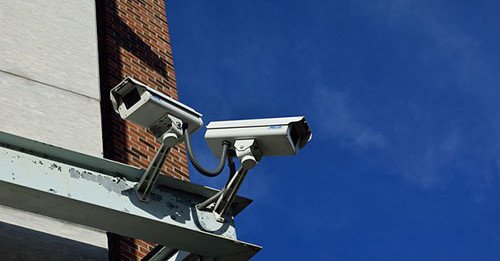The Met police has an abysmal record when it comes to collecting CCTV images to aid prosecutions, their former CCTV chief has claimed.
Mick Neville, head of the Met’s Central Forensic Image Team until he retired two weeks ago, says the Met’s super recognisers – people with an exceptional talent for recognising faces – could solve thousands more crimes if the force trained officers to understand how to retrieve and use footage from London’s myriad network of video surveillance systems.
“The Met has the best system in the world for identifying suspects who are caught on camera in connection with crimes but it is not getting the images,” he said. “All these cameras are on and capturing images of suspects, but they are not being used to anything like their full potential.”
CCTV images were used in less than 2% of criminal cases in London during an eight month period last year, he said. This is despite the huge coverage afforded by the capital’s CCTV systems, with the average Briton caught on camera 70 times a day.
Of 515,193 crimes recorded by the Met between April and November, 84,035 offences were solved, including 1,629 with the help of CCTV. CCTV images were filed in 9,745 cases. Only 64 robberies were solved using CCTV footage out of 1,515 where images were retrieved (there were 15,330 robberies in total).

“Complex”
Neville said that officers were not routinely trained in image retrieval or given the tools necessary to download surveillance files from a “myriad of complex CCTV systems which even the owner did not understand.
“If the Met had specialist teams to gather and investigate images they could solve thousands more crimes. I think the Met is letting Londoners down. At present, officers have no training or equipment, or incentive, to gather CCTV in any but the most serious crimes.
“However, we know that there are certain people, a small number, committing a lot of volume crime. By gathering more images the super recognisers could do a lot more.
“Billions of pounds are being spent in London on CCTV, but we are only collecting images of 1.9% of crimes. That is abysmal. We are trading our privacy for security, but we are not actually getting the benefit.”
The former detective said he issued a similar warning in 2008 but that his message went unheeded.
“The key issue here is getting the CCTV footage to the police quickly. Unfortunately, most CCTV isn’t easily accessible.” James Wickes, CEO, Cloudview
James Wickes, CEO and co-founder of Cloudview, says the security industry could make it easier, and quicker, for police to get the images they need. “The key issue here is getting the CCTV footage to the police quickly,” he said. “Unfortunately most CCTV isn’t easily accessible.”
“Someone has to go to where the recording device is located, find the relevant footage and then put it onto a disk or USB stick so the police can collect it. If they can’t get the footage off the system, the police frequently end up taking the entire DVD recorder!
“And all too often the user gets to the site only to find that their cameras are out of order. I’d estimate that only around 1-2% of CCTV is being used.
“A much better solution is to store CCTV footage in the cloud. It can be accessed instantly if it’s needed, and emailed directly to the police so they can look at it immediately – a much better use of their resources – and taxpayers’ money – than having to go and collect it first.
“Another advantage is that criminals often damage or destroy CCTV equipment, so using cloud means that the evidence is out of reach, except by those authorised to access it.”
Neville’s comments were also seized on by Big Brother Watch chief executive Renate Samson: “We are one of the most watched cities in the world but as these comments reveal we may be sacrificing our privacy to a system which is providing very little security,” he said.
“Whilst we are told CCTV prevents crime, these figures indicate that crimes are ongoing and that CCTV is only used to investigate crime which has already happened. We have lived with these cameras for over 15 years now. Isn’t it time we were told the truth about how they used, where they provide value and whether they are truly necessary to be everywhere we go?”
A recent independent review recommended that the Met’s renowned super recognisers, who helped German police identify suspects following a coordinated spate of assaults in Cologne on New Year’s Eve 2015-16, should be doubled in number. Just six recognisers currently contribute to the arrest of around 100 suspects a week.
Neville also pointed out that more suspects are identified via facial recognition than through DNA detections.
Free Download: The Video Surveillance Report 2023
Discover the latest developments in the rapidly-evolving video surveillance sector by downloading the 2023 Video Surveillance Report. Over 500 responses to our survey, which come from integrators to consultants and heads of security, inform our analysis of the latest trends including AI, the state of the video surveillance market, uptake of the cloud, and the wider economic and geopolitical events impacting the sector!
Download for FREE to discover top industry insight around the latest innovations in video surveillance systems.